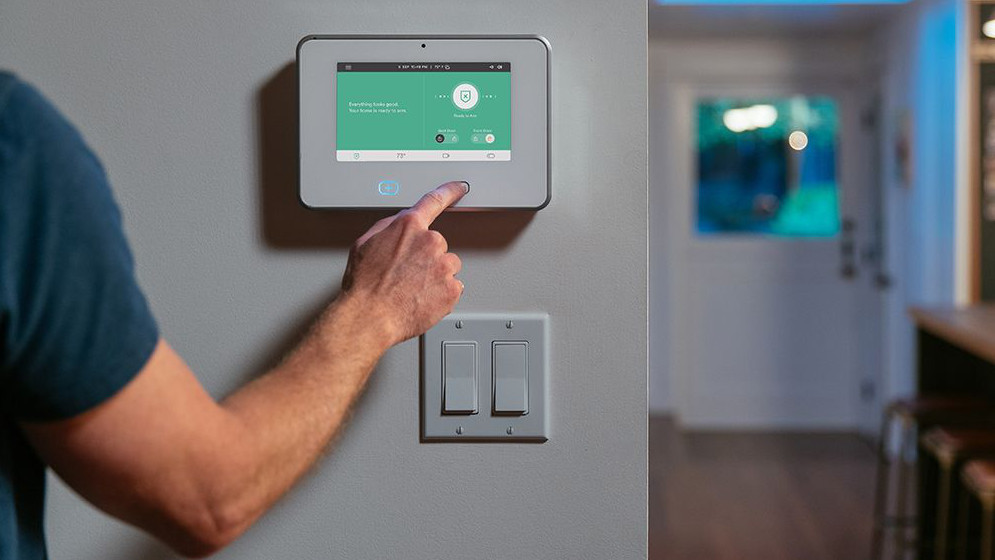The best home security systems are designed to give you peace of mind with secure monitoring. Our home security system reviews cover many systems at different price points so you can find the best system for you. We’ve even covered home security systems that offer alarm monitoring, wireless cameras, and professional assistance to offer maximum vigilance and security for your home.
The best home security systems protect you by ensuring security services are contacted as quickly as possible should the worst happen. They can also help you reduce the threat of crime by working as a deterrent. The range of systems available includes self-monitored and professionally-monitored systems, smart home integration, and the ability to control your system from your smartphone. Some, like the Ring Alarm, even allow you to monitor your front door from your phone and see who’s calling at your front door, even if you’re on holiday.
There’s also a selection of set-up options. Some work well with DIY installation and tend to be cheaper, while others perform best when professionally installed. All home security systems offer assistance from security services, sometimes as an optional extra with an extra fee. While this may be an extra expense, for some, the extra peace of mind is more than worth the cost.
The Frontpoint Home Security System is our pick for the best hardware choices, including cameras, a smart doorbell and glass break, garage door tilt, flood, smoke and heat, and carbon monoxide sensors. However, more hardware can mean more monitoring costs, too, so it’s worth checking for those and factoring them into your budget when choosing the best home security system.
Check out our guide to the best wireless security cameras for other ways to keep your home safe.
The best home security systems we recommend
Why you can trust Top Ten Reviews Our expert reviewers spend hours testing and comparing products and services so you can choose the best for you. Find out more about how we test.
Top Ten Reviews is on a mission to review everything we feature in our buyer's guides. Still, while we work hard to make this a reality—or where this isn't possible—some of our guides still feature rankings based on our team's considerable expertise and research.
While we haven't been able to test any of the units in this guide in person, we've instead honed in on top-rated brands and used our knowledge of the best features to help you make the right decision for your home, all for the best price.
The best DIY home security system
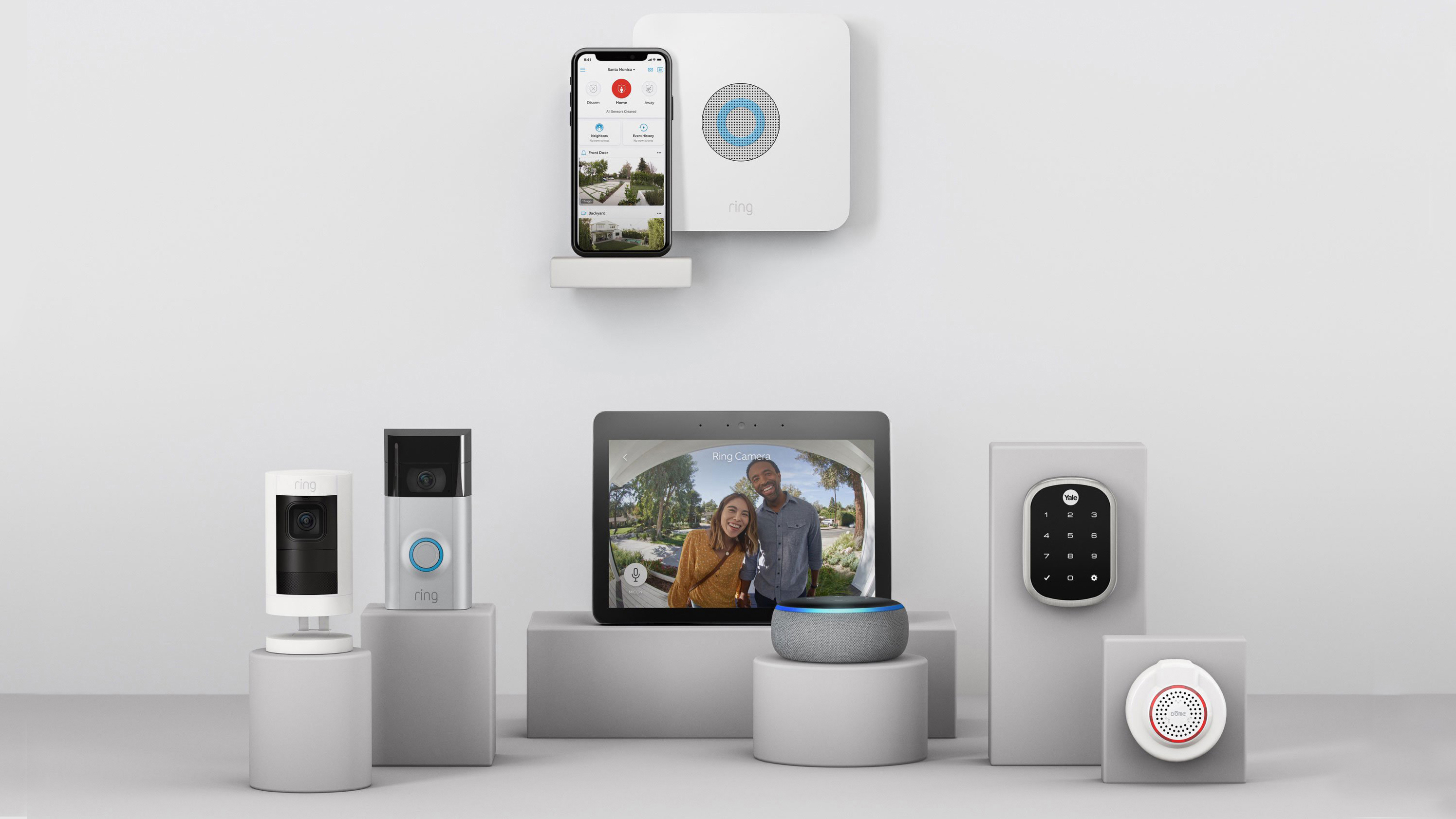
A DIY system that you buy outright and fit yourself, the Ring Alarm uses the same excellent app that the company’s security cameras and smart doorbells use. There are no monthly fees for using the full app, either, making this a cheap system to run.
If you want professional monitoring, Ring offers this for just $10 a month on a rolling contract, which also gets you 60-days of cloud storage for any Ring cameras that you have. For anyone with Ring cameras, this makes the alarm even more of a bargain.
There are optional flood, freeze and smoke sensors for environmental protection, and the system supports a limited number of smart devices, including Schlage and Yale smart locks and GE smart switches.
Slightly limited control options, limited to the Keypad and app, make this system a touch less flexible than others. For those looking for a great-value DIY system that has optional professional monitoring, this is a great choice.
The best home security system for smart homes
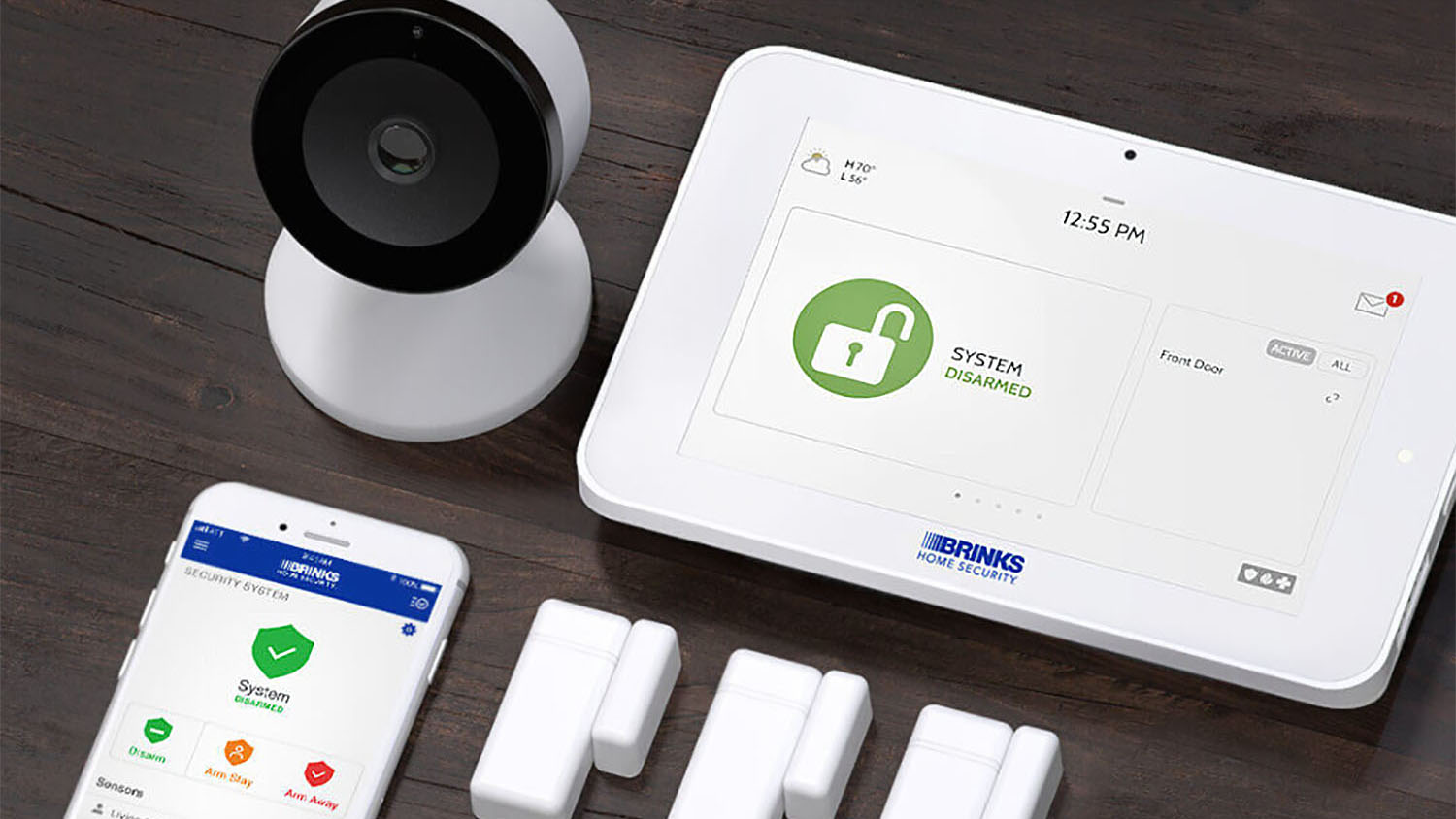
Brinks Home Security has some of the best hardware packages available, including the option of using the Nest Secure alarm system. Usually, Nest Secure doesn’t come with a monitoring option but, here, Brinks layers monitoring over the top. There are additional hardware packages available, too.
Controlled via the Brinks Home Security app, powered by Alarm.com, the system is compatible with a wide-range of Z-wave-compatible smart home devices. If you’re looking for additional control and automation in your home, there are few systems better than Brinks.
Most importantly, Brinks Home Security tops the J.D. Power 2018 Home Security Satisfaction Survey, showing how good its monitoring is. If you’re happy to self-install the hardware and will use the smart home integrations, Brinks Home Security is a great choice and has a simple pricing structure that includes cellular backup in the most basic package.
The most flexible home security system
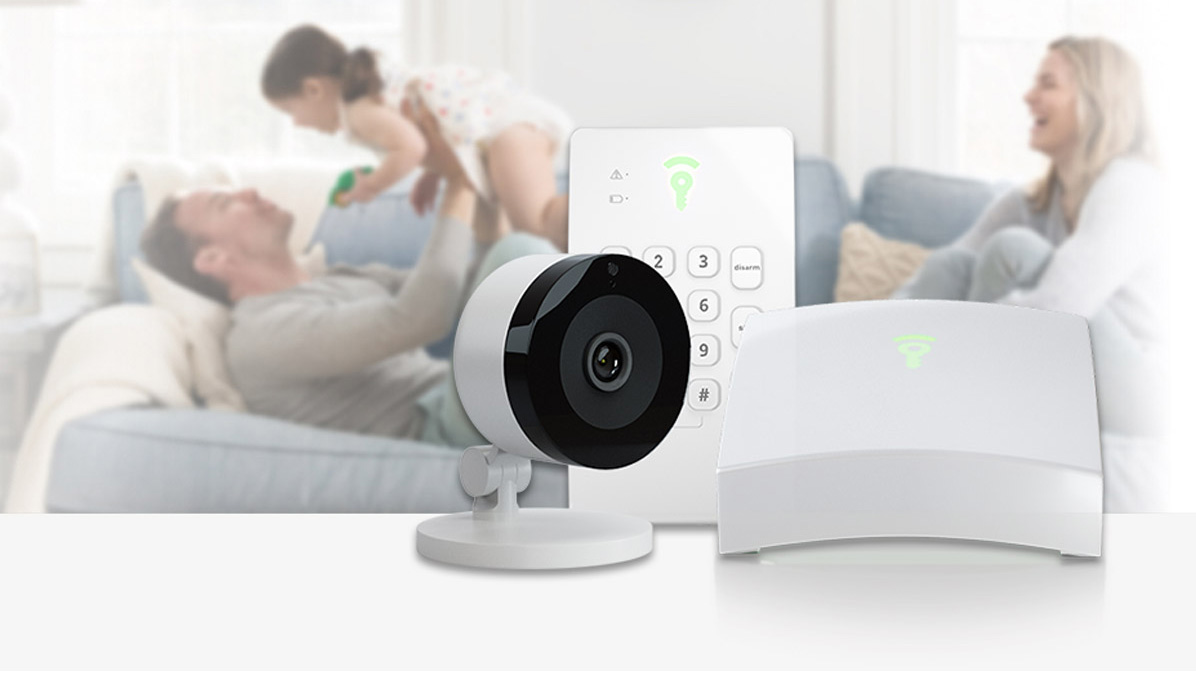
Frontpoint Home Security has some of the best hardware choices of any alarm system provider. In addition to the standard window/door and motion sensors, Frontpoint also offers cameras, a smart doorbell and glass break, garage door tilt, flood, smoke and heat, and carbon monoxide sensors. That’s enough to protect your home against pretty much every disaster.
Smarthome integration lets you control and automate a large range of other devices, too.
The main downsides are that you only get the best hardware deals by signing up for a three-year contract and that some hardware, such as the cameras, require you to take out the most expensive monitoring package.
Even for basic use, you have to get at least the second package to enable the smartphone app. Frontpoint offers self-installation on all hardware but requires that you have at least the entry-level monitoring plan, otherwise the system doesn’t work.
A solid five-star review on TrustPilot shows how good Frontpoint Home Security really is, and if you can stomach the long contracts, the flexibility on offer can protect your home against a huge range of threats.
The best premium home security system
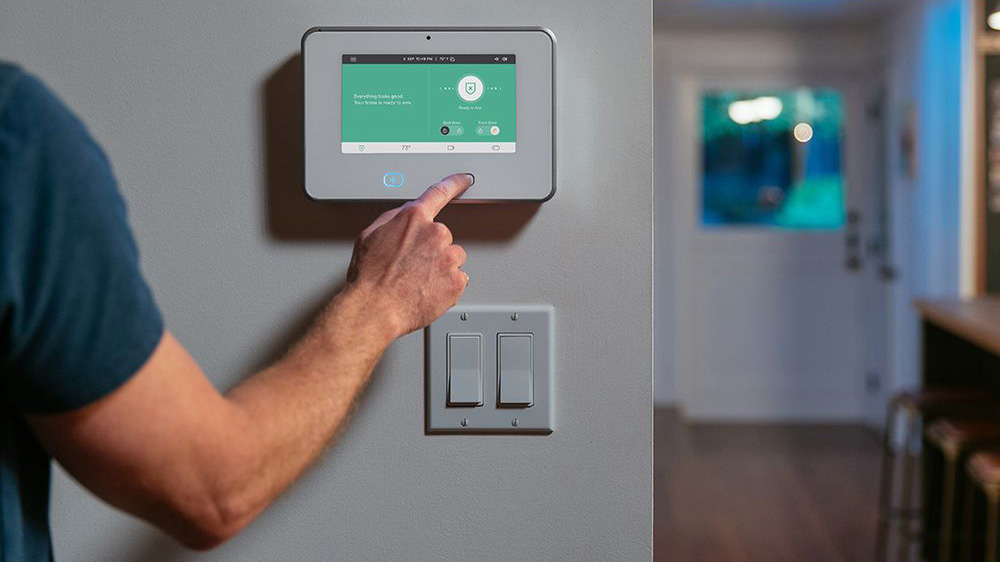
Now 20-years-old, Vivint has come from practically nowhere to be one of the biggest players in smart home security. One of its main benefits is that Vivint keeps it very simple, with just three monitoring packages, all of which include cellular backup.
It is a professionally-installed system, which takes away the pain of getting the alarm configured, but means that hardware is a touch more expensive than the competition. Watch out for the short cancellation period and high termination fees, though.
Vivint Smart Home Security has a highly-rated monitoring service and a growing list of hardware, including a smart doorbell, an outdoor camera and the Ping indoor model. The Ping lets people initiate a video call to your phone, so someone at home can quickly call for help if needed.
Controlled via the SkyControl touchscreen panel at home (the Sky smartphone app gives remote control), Vivint is smarter and easier to use than many of its rivals. There’s support for some Z-Wave smart devices, too, although other providers have wider support.
Long contracts and expensive cancellation fees are an issue, but the top-notch installation and monitoring make this a great system for those that can afford it.
The best home security system warranty
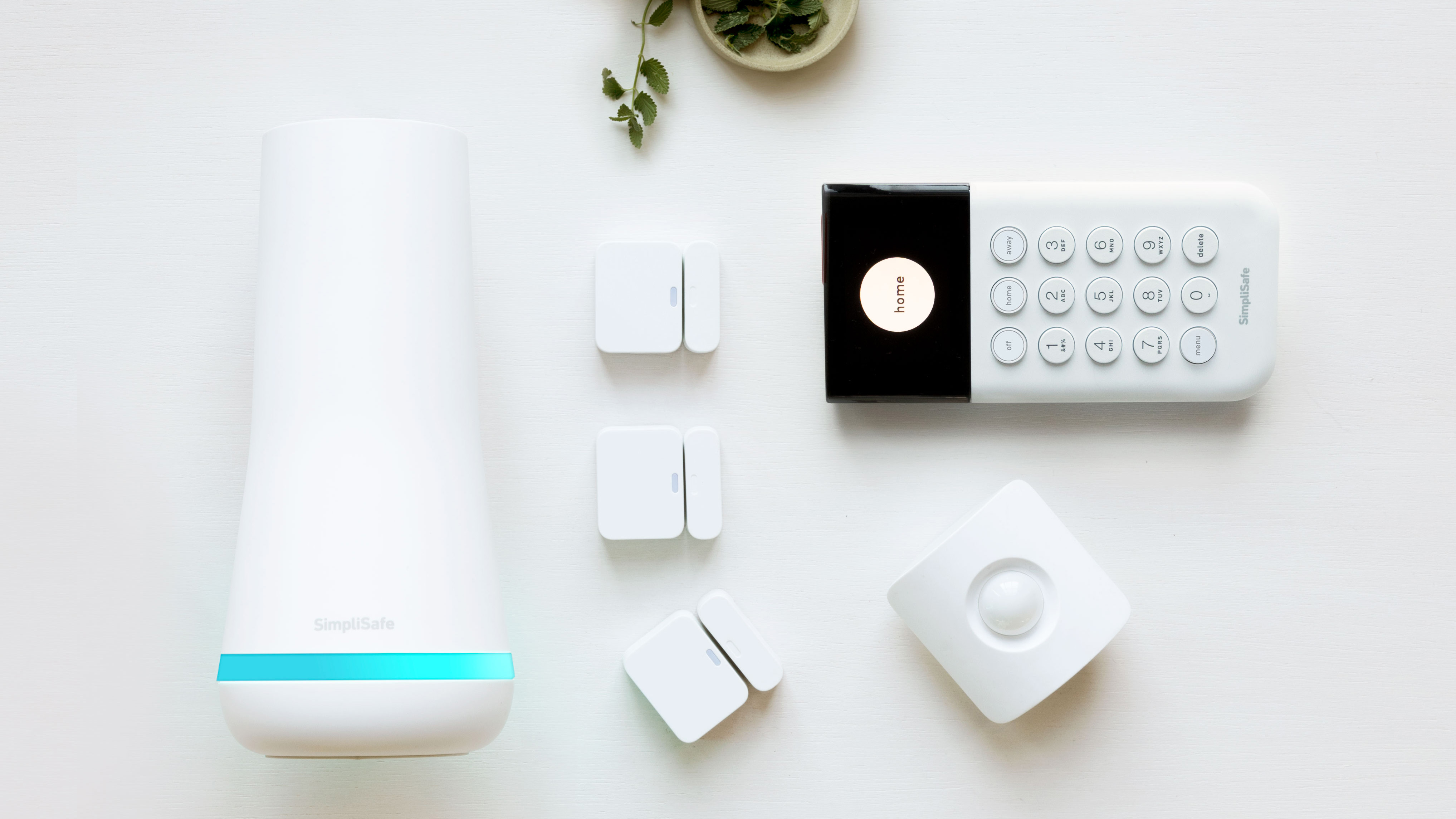
SimpliSafe is designed to offer flexibility in how it’s used and installed. At its most basic, it’s a DIY system that you install and self-monitor with no contract. However, you can pay for installation if you prefer, and you can add professional monitoring into the mix.
It is a touch irritating that you have to sign up for the Interactive Monitoring package ($24.99 a month) to get the smartphone app to work; other DIY systems throw in the app for free. Monitoring packages don’t come with a contract, you can cancel whenever you like.
SimpliSafe has a great range of hardware and lets you expand your systems with security cameras, a smoke detector, glass break sensor, freeze and water sensors, and keyfobs. All hardware is protected by a generous three-year warranty, which is a good deal better than much of the competition.
Reviews are split, with some loving the self-install and ease of use; others found problems trying to get the system working. Smart home integration is also rather basic and there are better systems for those with connected homes.
If you need a DIY system with the option to add professional monitoring as and when you need it, SimpliSafe is a good choice.
The best home security system for on-demand monitoring
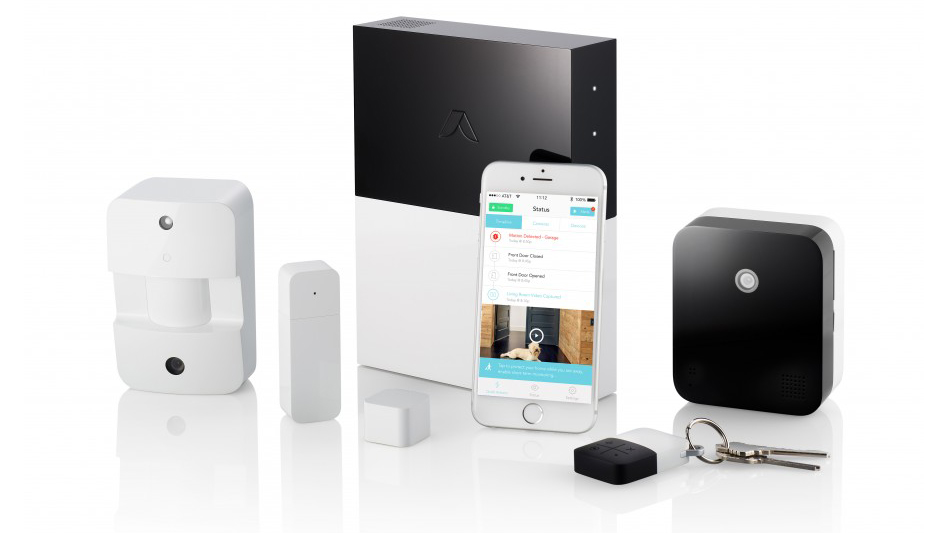
Abode is another DIY system, but it’s the easiest one that we’ve ever installed. The company sells several kits to get you started, but there’s a wide range of additional hardware to choose from, including glass break and water leak sensors, a smoke alarm, keyfob, and a camera coming soon.
The system is all controlled and monitored via the smartphone app, which you can use for free. If you want to take the system a bit further, then there are some interesting packages. At the most basic, you can add cellular backup, while keeping the system to self-monitoring; you can also upgrade to add professional 24/7 monitoring.
What makes Abode so brilliant, is that you don’t have any contract period for monitoring services, and there are special options for those on holiday. Put your alarm into vacation mode and you can add professional monitoring for three or seven days.
Customer support is quite limited, with only those on the paid-for plans getting telephone service, so this really is a system better for the tech-savvy. If you mostly want to self-monitor your alarm but want the occasional option for professional monitoring, Abode is an excellent choice.
The best home security system return policy
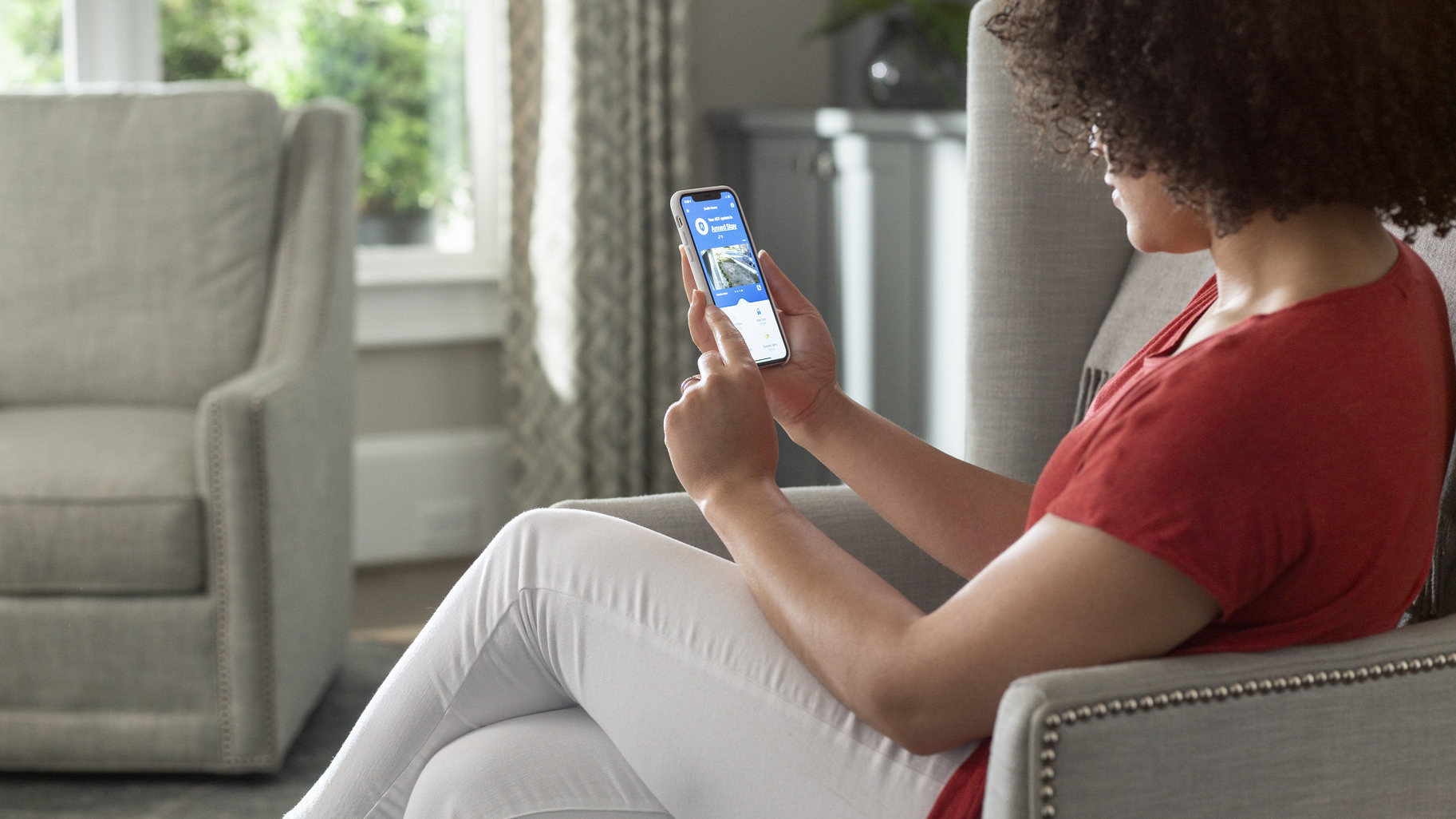
ADT Home Security is one of the best-known and biggest names in home security, although the fact that it is such a well-regarded security company means that it can charge a premium for its monitoring services, and it can get expensive if you want additional features, such as cellular backup.
While it may be expensive, ADT does offer a 6-month money-back guarantee: if you get a fault within that period that ADT can’t resolve, you get all of your money back (check the terms and conditions for full details).
ADT has a flexible range of monitoring packages and hardware, including its own sensors and a package built on Samsung SmartThings. Outside of security, ADT offers flood, fire and carbon monoxide monitoring, provided you add the required sensors. ADT isn’t always upfront about costs, and some packages require you to call for more information, which can lead to the company trying to sell you more.
Via the ADT Pulse app, you can add and control a large number of Z-wave smart home devices, automating your house beyond simple security.
The quality of the monitoring and customer service score highly, and if you value these two aspects above all else, then ADT Home Security is a solid choice. However, the high costs, particularly when moving house, mean that there are better-value options from some of the smaller home security companies.
Home security system FAQs
Self-monitored vs professional monitoring, which is best?
Home security systems have two monitoring options. Self-monitored is the cheapest form as it’s up to you to monitor your own alarm. At the most basic, an alarm will just trigger an internal siren at your home. If you’re in, you’re alerted to the problem and can deal with it; if you’re out, you’re reliant on a neighbor letting you know or calling the police.
The next stage of self-monitoring is to have an alert come through on your smartphone. Some companies provide this for free, but many have a small charge to enable the app. With an app, you get the benefit that alerts are sent to you wherever you are, so you can deal with them remotely. Combined with a security camera, you can then check what’s going on in your home and, if there’s a genuine threat, you can call the police.
The downside of self-monitoring is that you have to be available at the time the alert comes in. If your phone’s out of service or you’re away and sleeping, you may miss a break-in and be too late to deal with it.
Professional monitoring adds that extra layer of protection. By paying experts in a monitoring center, your alarm system is monitored 24 hours a day, seven days a week. Should there be a break-in, professional monitoring is the quickest way to dispatch police support.
If you’re away from home a lot or you live in an high risk area, professional monitoring is the best solution.
DIY, self-install or professional install, which is best?
Depending on the alarm system provider that you choose, you’ll have a variety of installation options available to you. There’s no right answer as to which is best, but the key thing is to find the type that best suits you.
Professional security system installation
Professional installation will involve the security provider sending an installer to your home to consult on what you need. This expert opinion can mean that you get the best protection for your home, but be wary of them trying to sell you additional kit you don't need: always get an explanation of the benefits before signing up for anything.
As well as the survey, professional installation means that you’ll end up with a system that will work properly; if it doesn’t, then you can get the company back out to fix the issues.
Professional installation is the most expensive type and there’s usually an associated fee to pay.
Self-install security system installation
With a self-install system, you get sent out all of the kit that you need in a bundle. All you have to do is plug in any wired devices, and then place the sensors where you need them. These systems will be pre-paired, so the installation is straight-forward. Typically, there’s no fee for this type of installation, although some companies do charge a small activation fee. Make sure that you specify enough sensors for your home at the time of purchase (see below).
The downside of this type of installation is that you have to make sure that your alarm system is working and any communications problems are yours to fix. Typically, telephone support is available for any issues.
DIY security system installation
DIY systems are often bought off-the-shelf from retail stores and don’t require a contract or installation fee. Sensors typically have to be manually paired to your alarm system, adding complexity. As with self-install, make sure that you’ve bought enough of the right type of sensors.
The downside of this installation is that it’s entirely up to you to get things working, although telephone support may be on hand. These systems are the best for tech-savvy people.
What security alarm sensors should I have?
Each security system we've covered has a different range of hardware, but it’s important to get the right equipment for your home, which may limit the supplier that you can go to. Here’s an overview of the main sensors and hardware to consider.
Window/door sensors – These sensors combine magnet with a sensor and are fitted on doors or windows. When a door or window is opened, the magnet moves away from the sensor and triggers an alarm. These should be fitted to all ground-floor windows and doors, plus any windows or doors that are easily reached, say those above a flat roof.
Glass-break sensors: Many burglars will smash a window, preventing a window/door sensor from being triggered. A glass break sensor will detect this, adding an additional layer of protection for large glass doors and windows.
Motion sensors: These pick up movement using a passive infra-red (PIR) sensor, letting you cover a large area. Ideally, these should be placed where a burglar will have to go, so in the corner of an open-plan room or in hallways that provide the main access routes through your home.
Pet-safe motion sensors: The same as standard motion sensors, although these are fine-tuned so that a pet will not set them off. Animals under a certain size are ignored, but be careful of placement: a cat jumping up onto a table can be registered as a person.
Additional sirens: Additional sirens, can help you hear an alarm, particularly if you live in a big home. External sirens are good for alerting neighbors to a break-in, and the visible boxes can act as a deterrent, too.
Panic buttons: These buttons give you a quick way to set your alarm off and, if you have monitoring, to contact the center, sending a call of help. Keep these near your bed or other areas of your home that you spend a lot of time in.
Key fobs: A key fob can be a handy way of arming and disarming your alarm system without having to fumble for your smartphone or type in a code on a panel.
Cellular backup: Most alarm systems are connected to the internet via your home router. If your broadband connection goes down (or is cut), basic alarm systems can no longer communicate with the outside world. Look for a system with cellular backup, which uses the mobile network for communication in the event of an issue. Activating this usually requires a monthly fee and may only be available on some of the higher-tier monitoring packages. Alongside cellular backup, most alarm systems will have battery backup that protects against power failure.
What other sensors do I need?
Many alarm systems have support for other environmental sensors that can protect your home against other catastrophes. Here’s a run-down of what to look out for if you want more than a basic alarm.
Smoke alarm: A smoke alarm can watch out for a fire at your home. Combined with professional monitoring, this sensor can be used for automatic dispatch of fire services, potentially saving your home from disaster.
Flood sensor: A floor or water sensor can detect when you’ve got a leak, such as from a boiler, washing machine or dishwasher. Finding out about standing water before it’s ruined your home can protect against expensive repairs.
Freeze sensor: A temperature sensor can be used to detect when your home is at risk from freezing pipes, which expand and burst. These are particularly useful for people that live in colder states and those that spend a lot of time away from their home.
Do I need a security camera?
Many alarm system providers have the option of adding a security camera into the mix, while there are plenty of third-party options in our best wireless security cameras guide. Security cameras can be a great addition to any alarm. First, they give you a way of seeing what’s going on in your home when you’re not there. Secondly, they record evidence that may be useful to the police in the event that your home suffers a break-in.
Some security companies require you use their specific cameras for professional monitoring. Others are more flexible.
How much does an alarm system cost?
You can expect to pay $120 upwards for the physical hardware in your system, although this only covers the base package and you’ll most likely need to spend extra on additional sensors to fully protect your home. Many companies allow you to spread the payment out over a period of years to reduce the initial burden.
On top of this, if you want professional monitoring, you should expect to pay, on average, between $20 and $50 a month, with contracts lasting between one and five years. Contract length defines how much you’ll pay, with the best overall deals for longer contracts.
What kind of cancellation fees should I expect?
Early cancellation fees can be expensive, and there are some companies that expect you to pay 80% or even 100% of what you owe. If there’s a good chance that you’re going to cancel your contract, avoid these companies and go for those that have cheaper get-out clauses.
Some companies just offer a rolling month-to-month contract, which means you can cancel at any point, only paying for the month that you’re using.
Watch out for equipment-return policies, too. Some companies only give you three days to trial equipment, while more generous companies give you a few weeks. If you’re not sure about an alarm system and think you may return it, look for longer return times.
How does the warranty work?
Warranties cover your hardware against failure and can range from a few months to a few years. Some companies offer lifetime warranties, but these are usually tied into you also signing up for a monthly monitoring package.
Most warranties require you put the system into test mode on a monthly basis to look for faulty sensors or dead batteries. Warranties don't cover dead batteries, so expect to change them every few years. Faulty devices under warranty are usually replaced for free.
Do I need an alarm permit?
A permit means you agree to pay for excessive false alarms that divert limited police resources and require your system to meet certain local standards. You should check with your local law enforcement to determine if a permit is needed and what the requirements are for that permit.
If you're unsure what you can do regarding your permit, ask if the security company provides assistance with permits or if you must do this on your own.
Can I get a discount on my home insurance?
There's a silver lining to paying for an alarm system: It can lower your home insurance costs. For example, most insurers offer a discount of at least 5 percent for having a security system in your home. Insurance companies know that the majority of burglars are less willing to risk targeting a home with a security system, making it less likely they’ll have to pay out on insurance claims.
If you meet certain requirements, such as having security cameras or smoke detectors, you can get a bigger discount, up to 20 percent, from some insurers. Although insurance discounts don’t entirely offset the costs of equipment and monitoring fees, they can make security systems more affordable for people with a limited budget. Check with your insurance provider to see what kinds of discounts you can get for having a security system.
Should I get support for other smart devices?
Many alarm systems can also integrate with other smart devices, which can be useful. For example, look out for smart lock integration, as you can arm your system automatically when you lock your door. Smart light integration can also be useful in some systems, turning on lights automatically when an alarm is triggered. The better connected your home is, the more important smart home integration is, so look at the options.
